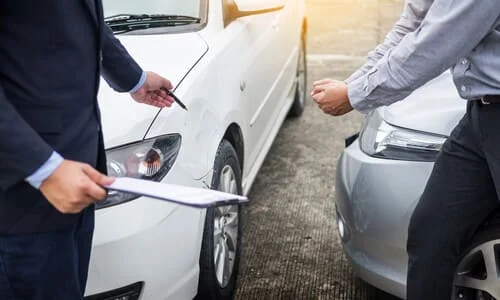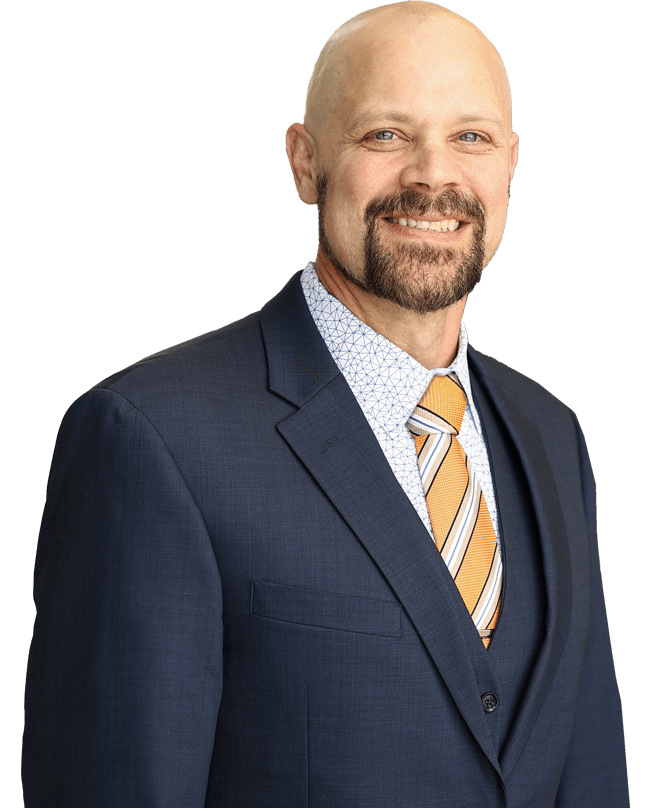Book a Consultation
Find out why so many clients appreciate the amount of work we put into their case.
"*" indicates required fields
Call 24/7
 Yes, liability insurance often can and does cover your car if someone hits you, but only if the accident wasn’t your fault. But before making a liability claim, there is a small caveat to keep in mind.
Yes, liability insurance often can and does cover your car if someone hits you, but only if the accident wasn’t your fault. But before making a liability claim, there is a small caveat to keep in mind.
Unfortunately for anyone looking into liability claims for compensation, Utah is a no-fault state. A Salt Lake City car accident attorney can clarify what this means for you, as you probably can’t make a third-party liability claim without first pursuing whatever compensation your own insurer has to offer.
Still, that doesn’t mean liability claims are off the table. Third-party liability might be harder to aim for in Utah than in most other states, but there are rules set in place that might make it a viable option for you.
Having liability insurance means the insurer pays for damages up to the limits of your plan in the event of a car accident where you are at fault.
Now, because we mentioned that Utah is a no-fault state, drivers often do not have to pay liability insurance for bodily injury. However, if a victim’s injuries are deemed severe enough, or if their expenses are high enough, liability pays the victim in your stead.
So then, assuming you hit a pedestrian with your car, then they will turn to any personal insurance first. If the cost or injury to the victim passes a certain threshold, or if they are uninsured, your relevant policies pay for the remainder.
Again, Utah is one of only a few states that follow what is called a “no-fault” system. What this means is in addition to automobile liability insurance required in all states, Utah also requires drivers to have their own protection policies in place in the event of an accident.
Insurance providers within the state also offer other policies for different kinds of protection. Available plans in Utah include collision, comprehensive, underinsured motorist (UIM), and uninsured motorist (UM) insurance.
Automobile liability insurance is a general term for policies that cover bodily injury and property damage a third party suffers in an accident with the driver. This coverage is indicated in your insurance policy as three numbers, separated by two slashes.
Each of these numbers represents your coverage for per-person bodily injury, per-accident bodily injury, and property damage in thousands of dollars. In Utah, the minimum values indicated here are 25, 65, and 15, respectively.
Car accident victims can file a property damage liability claim against an at-fault driver as long as they have incurred damages from the accident. However, as earlier noted, bodily injury claims may only be filed if Personal Injury Protection (PIP) does not apply.
Note that where automobile liability insurance applies, Utah follows a comparative negligence rule. Under this, a person can only make a claim if the other driver is more than 50% at-fault, and after a settlement is made, the total payout is reduced by the claimant’s share of fault.
PIP is a second type of insurance policy required by Utah as a no-fault state. In fact, by definition, the requirement of PIP is what makes Utah a no-fault state.
This type of insurance provides medical benefits, including coverage for hospital bills, medication, therapy, and more, depending on the insurance provider.
The policy applies regardless of fault, which (ideally) streamlines the claims process compared to liability claims. It serves as a means to compensate victims quickly and allows them prompt access to necessary healthcare services.
PIP coverage must be expended before an accident victim can pursue any other claims like bodily injury liability. To this end, Utah requires drivers to have a minimum of $3,000 in PIP to account for any physical harm they and any passengers sustain in the accident.
However, Utah also specifies expense and injury thresholds that, when met, allow a person to step outside the no-fault system and opt for compensation by a third party. This assumes the third party is at fault.
When one or both of these thresholds is met, the injured accident victim can turn to a BI liability claim against the at-fault party.
One important point regarding PIP: it covers the insured individual regardless of whether they were in a vehicle or not. An insured pedestrian will have to turn to their PIP policy for compensation the same way a driver or passenger would have to.
This is a type of insurance policy that pays for damage to your car in the event of a collision. It is primarily useful for covering your own damage when you are found at fault for an accident or for accidents where no one is found at fault (for example, from a bad pothole).
Collision insurance is an optional insurance policy in Utah. A way to simplify it is to think of it as PIP for your car instead of for your injuries, as fault rarely ever applies when making a collision insurance claim.
Comprehensive insurance protects your car from any form of damage not involving a collision and includes weather damage, theft, and vandalism. Of note, comprehensive insurance policies tend to have clauses relating to the policyholder’s security measures to keep their car safe.
Comprehensive insurance, like collision insurance, is optional in Utah.
This is a policy that protects the insured party if the at-fault party’s insurance policy is insufficient to pay to cover all damages. Typically, UIM insurance pays for the difference after deducting the at-fault driver’s policy from the insured’s total damages.
UIM insurance is another policy that is not necessarily required in Utah. However, it is also useful in that it provides additional avenues of compensation, provided the policyholder can prove the other party was at-fault and cannot cover all the costs.
UM insurance covers injury and property damage in the event of an accident with an uninsured driver or in the case of hit-and-runs where the other driver cannot typically be contacted for their insurance information.
This is another optional form of automobile insurance policy in Utah. In contrast with PIP, and similar to some other policies listed here, the determination of fault can play a part in making a UM claim.
While navigating the finer details of a claim (investigation, negotiation, etc) can be complex, the process of actually making a claim is mostly straightforward.
No matter what type of insurance claim you need after a car accident, Valley Law Accident and Injury Lawyers is here to help you get the compensation you need. Our lawyers have spent years refining their skills to maximize payouts in insurance negotiations.
Valley Law’s lead attorney Brigham Richards puts more than a decade of personal injury law in Utah on the table to ensure your claim is fair. His belief in a personal approach to clients puts your interests first and eases your path to recompense after an accident.
Contact us today by filling out our online form, or call us at 801-810-9999 today for a no-cost, no-obligation case evaluation with one of our lawyers. We work by contingency, so you do not have to spend a dime until we win your case for you.
Get in touch


2021 and 2022 Gold Winner for Top Law Firm by Salt City Best
Call 24/7 801-810-9999